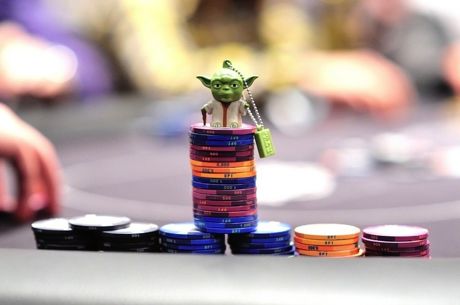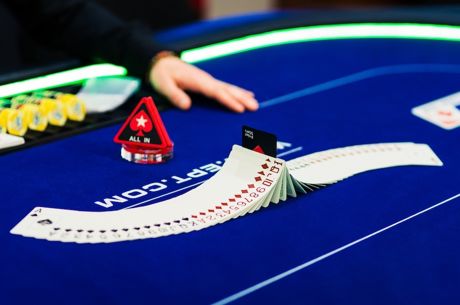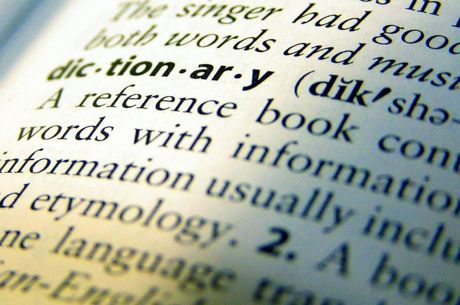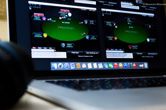Of John F. Kennedy, the Butterfly Effect, and Poker Hands
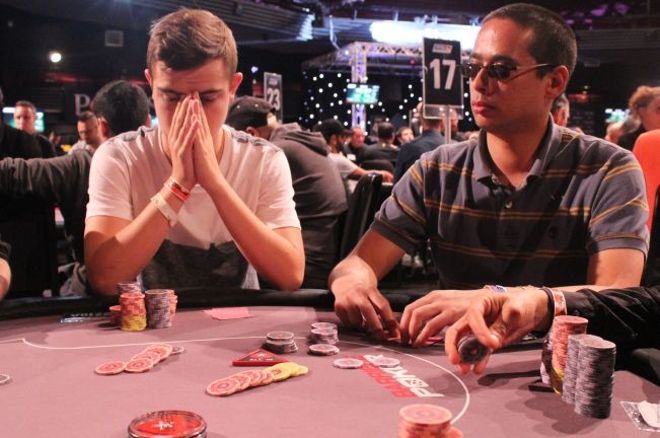
Light rain fell in Dallas the morning of November 22, 1963. But by noon, the skies had cleared, in time for the presidential motorcade through the city. Imagine if instead it had kept raining. The top of the presidential limousine would have been left up for the motorcade, and Lee Harvey Oswald would have been unable to aim his rifle at President John F. Kennedy.
How would the world be different if JFK had served eight years, and it had been he, rather than Lyndon Johnson, who dealt with Vietnam, the civil rights movement, and all the other issues that arose? That's the premise of political commentator Jeff Greenfield's thought-provoking book, If Kennedy Lived. It's a recent example of a whole genre of fiction called "alternate history" in which the author changes one small event from how it actually transpired, and tries to imagine how subsequent history would have been different.
Such writings make sense to us because we understand that human history is not predestined, but rather, to borrow a phrase from biologist Stephen Jay Gould, "massively contingent." Gould was speaking of evolutionary history, but the same is true of human events.
"Life's history is massively contingent �� crucially dependent upon odd particulars of history, quite unpredictable and unrepeatable themselves, that divert futures into new channels," explains Gould. "We can explain the actual pathways after they unroll, but we could not have predicted their course. And if we could play the game of life again, history would roll down another set of utterly different but equally explainable channels."
Put more succinctly, every event has an impossibly complex, endless chain of causality stretching back to time immemorial. Change one thing, and everything thereafter changes, too. The proverbial buttery flapping its wings in Brazil days before Kennedy arrived in Dallas might have triggered atmospheric conditions that caused that morning rain to blow over by noon.
The Complicated Chain of Causality
Yes, yes �� but what does all this have to do with poker? Well, the same principle applies, on a smaller scale, to our game. Here's just a tiny sampling of the things that can change poker "history":
- If the dealer takes one swirling motion more or less in his "wash" of the cards, the order of the deck changes for the next hand �� and for every hand thereafter, too.
- If he applies an extra tenth of an ounce of pressure with one thumb during one of the riffles, the cards fall differently into their shuffled position, and everything about the next hand is transformed.
- If the card room uses automatic shufflers, perhaps the dealer is distracted by a friend waving hello, and thus delays putting the deck into the machine for one second, which causes the machine to use a different mathematical "seed" for its random number generator that determines the order of the cards.
- If a card is pitched at just the right (or wrong) time, it hits a fluctuating current of air from the casino's ventilation system, flips over, and has to be replaced; half a second later, and that doesn't happen.
And these are just things pertaining to the dealer �� that is, factors affecting which players get what cards. How each player then plays what he's dealt is itself a complex series of decisions, contingent on how others play before him, his mood, his whims, whether he's up or down for the session, and so on.
It's not just bad-beat hands that can be so analyzed, although they're the ones that more often tend to earn this sort of "what if?" scrutiny. Every hand of poker is subject to all of these variables, and thousands more that we cannot possibly know.
One player decides to order an extra drink. Twenty minutes later, his blood alcohol level has crossed a threshold that causes him to play more loosely than his usual pattern, and an hour after that he has to miss a couple of hands while he takes an extra restroom break. Both of these tiny changes affect everything that plays out at that table.
I remember once facing a situation in which I had just the nut flush draw, but two players ahead of me went all in, creating such a huge pot that it became mathematically correct for me to call. If either one of them had folded, I would have judged the pot odds wrong to call. (I hit my card and won it.) Every decision we make depends on everything that happened before.
Did You Notice��?
Why belabor this? It's a matter of correct thinking. Without correct thinking about poker, you can't make correct decisions.
Consider how many people tell the story of busting out of a tournament. The tale usually begins and ends with being short-stacked, going all in with a decent hand, and getting called, with unfortunate results.
But if the story were told in full, it would take hours, maybe even days, to relate. It would include every decision point by every player in every hand. At the very least, it has to include an explanation of how the storyteller came to be short-stacked enough that an all-in move became necessary, and that circumstance alone usually encompasses dozens or hundreds of previous hands.
Maybe you're driving home from the casino, steamed because you lost all your chips on the last hand. You shoved as a bluff on a scary board, and to your surprise a normally weak, timid player called with a hand that was about what you put him on, and which he clearly should have folded. It's the easiest thing in the world to think of the other player as an "idiot," and stop the analysis there.
But of course, that's not really the full explanation.
Did you notice the expensive suit and watch he was wearing that might have signaled you that he's very well-off and playing just for fun, with no care whether he wins or loses? Did you notice how he giggled with delight every time he hit an improbable draw, as if it were his favorite thing in the world to do? Did you notice that he had just taken a call from his wife, asking him to come home, so that he was playing in "double up or go bust" mode?
Did you notice how many times he had folded to intimidating bets from other players, and how it had rankled him to the point of seeming like he was going to draw a line in the sand? Did you notice his visual impairment, and how it caused him to read board cards of the same color erroneously as if they were the same suit and thus think that he had a flush when he didn't?
Did you notice his tendency to underestimate the size of opponents' stacks? Did you notice that the tournament clock was about to change to another level, making him suddenly short-stacked in the big blind next hand?
I could go on, but you see the point, I hope. Any of these �� or a thousand other factors I could name �� could be what was really behind his decision to call when you needed and expected him to fold. Of course, many of these are things you could not possibly have known or anticipated. Maybe the situation somehow reminded him of a hand he played last week, in which he got ridiculously lucky and won a huge pot. Maybe his down cards were a favorite hand that he never folds. Maybe as he was making his decision, he got a text message from a friend saying, "Call me," and took that as a sign from the universe that he should call you.
But if you expected a different reaction than what he gave you, the fault may lie in you for not having picked up on something within the realm of your potential observation that was pushing him in a way you failed to anticipate.
Pay Attention, or Pay the Price
I suppose it would be easy to read my words here as saying that there are so many unknowable variables in a poker hand that you might as well not bother even trying to understand what happened. That is not my point at all.
Rather, my point is that myriad factors go into everything that happens in poker. Many of them are, in fact, completely unknowable, while many others can be seen only after the fact. But there remain countless factors, currently going unnoticed, that you might make yourself aware of with more attention to the game and your opponents.
You'll never be able to account for everything other players do. But with careful observation, you can certainly become better at understanding how and why they make their decisions as they do. It may make their play, and thus the outcome of particular hands, only a little more predictable, but that's an edge that you shouldn't forego just because you aren't paying enough attention.
Never mind how the dealer shuffles or how butterflies in Brazil are flying. But do mind what you can, which is what's right in front of you.
Robert Woolley lives in Asheville, NC. He spent several years in Las Vegas and chronicled his life in poker on the ��Poker Grump�� blog.
Want to stay atop all the latest in the poker world? If so, make sure to get PokerNews updates on your social media outlets. Follow us on Twitter and find us on both Facebook and Google+!

